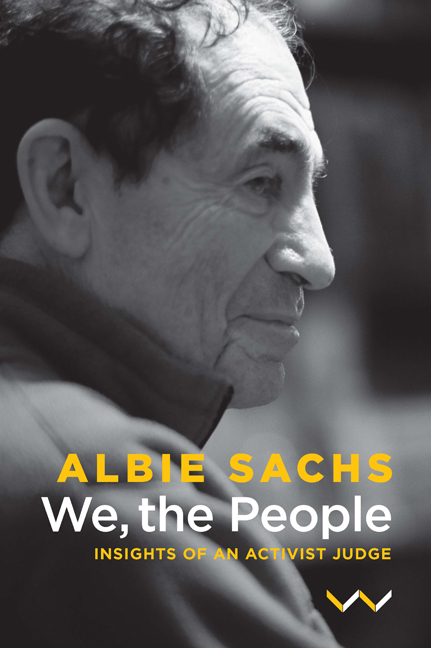Book contents
- Frontmatter
- Acknowledgements
- Miscellaneous Frontmatter
- Contents
- Figures
- Introduction
- 1 In the Beginning
- 2 Hope and Caution in Exile
- 3 We Have to Mistrust Ourselves
- 4 Inventing A Constitution
- 5 With Clean Hands and Without Secrets
- 6 Reconciling the Past and the Future
- 7 Living Constitutional Law and Ubuntu
- 8 More than Crumbs from the Table: Enforcing Social and Economic Rights
- 9 Struggle Continues
- 10 Are the Beautiful People Born?
- Cases Cited
- Sources
- Index
8 - More than Crumbs from the Table: Enforcing Social and Economic Rights
Published online by Cambridge University Press: 21 April 2018
- Frontmatter
- Acknowledgements
- Miscellaneous Frontmatter
- Contents
- Figures
- Introduction
- 1 In the Beginning
- 2 Hope and Caution in Exile
- 3 We Have to Mistrust Ourselves
- 4 Inventing A Constitution
- 5 With Clean Hands and Without Secrets
- 6 Reconciling the Past and the Future
- 7 Living Constitutional Law and Ubuntu
- 8 More than Crumbs from the Table: Enforcing Social and Economic Rights
- 9 Struggle Continues
- 10 Are the Beautiful People Born?
- Cases Cited
- Sources
- Index
Summary
In the beginning there was nothing. True, the constitutional text radiated with a pristine eloquence. Yet sitting up on the Bench responding to actual cases required us to go beyond simply reciting beautiful texts in resonant voice. The more important our role and the greater our authority, the stronger the need for us to be careful while we were bold. It was indeed a case of: Hamba kahle umConstitutional Court.
We had to establish meanings that were principled, coherent, operational and sustainable. And there was no case law and there were no textbooks to guide us. International judicial experience on the enforcement of social and economic rights was virtually non-existent. The constitutions of Ireland and India both included social and economic rights, but in each case these rights were expressly declared to be non-enforceable in courts of law. The Canadian Charter that was giving rise to extremely helpful fundamental human rights jurisprudence from the Canadian Supreme Court was completely silent on social and economic rights. The common law had nothing to say on the subject. The whole formalist and technicist mode of legal reasoning with which we were familiar was hostile to developing an appropriate form of legal discourse.
The very notion of fundamental rights was new and startling to the established South African legal mind. A young reader today could hardly imagine how revolutionary the idea was of treating the rights to health, housing, education and water, as existing on a par with the rights to speak out freely and to vote in secret. We had grown up in a legal system that gave more weight to the Oxford English Dictionary than to our country's history or its social cleavages. Moreover, the legal community of which we were a part had been so strongly imbued with notions of separation of powers that it could not even envisage judges naysaying government on questions of state policy and public spending, let alone developing an actual methodology for doing so.
How different it is today. As Chief Justice Willy Mutunga of Kenya has pointed out, the world is increasingly accepting that just as having a Bill of Rights is meant to correct deficiencies in concepts of representative democracy, so enforcing social and economic rights is intended to fill in lacunas left by the market.
- Type
- Chapter
- Information
- We, the PeopleInsights of an Activist Judge, pp. 199 - 236Publisher: Wits University PressPrint publication year: 2016



